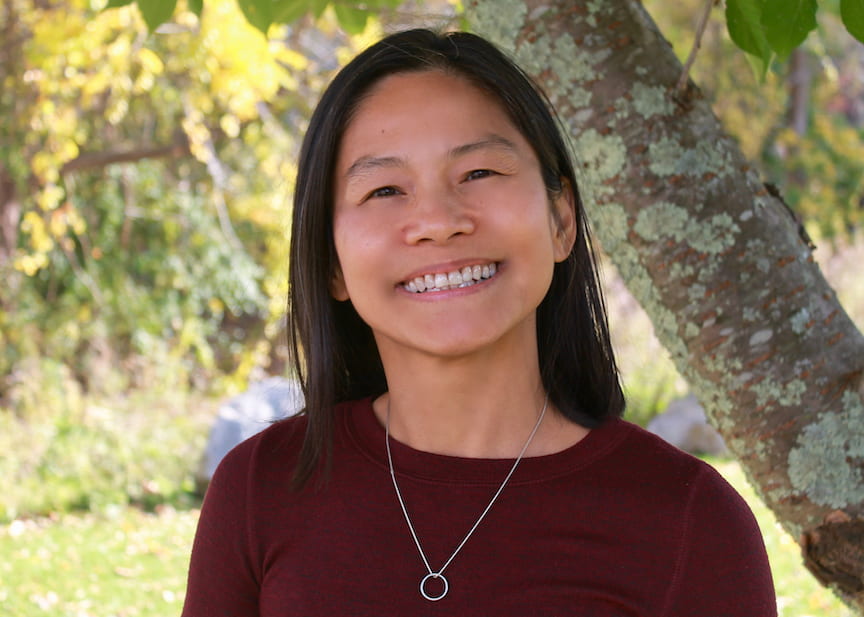The Veterans Affairs (VA) Health Services Research and Development has awarded Emma D. Quach, PhD ’17, with a five-year career development award to conduct mentored research on home care for older veterans with dementia. Quach is a research health scientist at the VA’s Center for Healthcare Organization and Implementation Research and New England Geriatric Research Education Clinical Center.
Quach plans three phases for her grant, “Applying High-Reliability Organization Principles to Home Care to Enhance Veteran Safety.” In the first phase, she will study potentially preventable hospitalization rates for older veterans with dementia who receive care at home, from a family member or agency caregiver. First she’ll analyze healthcare data from the VA and Medicare, working to “understand the landscape of patient safety, to see to what extent this population is experiencing potentially preventable hospitalizations.” She’ll be looking for the prevalence of adverse events that, because they aren’t treated early enough in outpatient care, escalate to veterans seeking emergency department care and hospitalizations.
From that big data study, Quach will narrow her focus to safety processes, using surveys and interviews. “I want to understand how, when older veterans are living at home and receiving care, their care providers observe early warning signs for things that could escalate to infections, or falls that lead to injuries. I want to see to what extent home care providers and family caregivers can work with outpatient clinicians, can their collaboration help address early warning signs to prevent hospitalizations.”
In the third and final phase of her research, Quach plans to implement a participatory, collaborative process in which home care providers and family caregivers use an existing tool designed for nursing home staff to help them identify early warning signs, suggesting ways to adapt the tool for home care providers and family caregivers.
One such tool, the “Stop and Watch” checklist, cites 11 major symptoms that certified nursing assistants in nursing homes should look for in their residents. “The tool may seem simple enough, telling CNAs ‘if you see this, you should take these vital signs and talk to your supervisor,’” Quach says. “But most family caregivers and agency caregivers don’t have a medical background. Home care providers are there to do chores and be a companion. But they are there, so they have valuable knowledge from watching the person every day; they can tell when there’s a change.”
Based on feedback from home care providers and caregivers, she will conduct a small feasibility study in which they use the tool, modified in a participatory process, for a week and then report back on how it worked, what changes they would suggest, and if they would continue to use it.
Winning the five-year research award “has been a journey,” Quach says, that involved a comprehensive application process for this funding and built on her research from a previous two-year VA career development research award.
“This award requires that I assemble a team of committed mentors, experienced scientists who are willing to be generous with their time to teach me how to write a grant and how to package the work,” Quach says. She is grateful for her “extremely generous and very competent” mentors, including Christine Hartmann, a VA research career scientist who is her primary partner, and Lauren Moo, MD, an investigator affiliated with the VA’s Center for Healthcare Organization and Implementation Research and Bedford site director for its New England Geriatric Research Education and Clinical Center.
The VA environment values and expects collaboration, she says. “Clinicians want to partner with PhD researchers, and researchers know we need that front-line clinical experience.”


Leave a Reply